It is in my head inhumanely early when I get up on the second of July to meet up for the IMISCOE PhD Network assembly in Barcelona. Luckily, breakfast will be provided, that’s a godsend in my tight schedule that morning.
Although I leave my hotel rather timely, I manage to get hopelessly lost in awakening and warm Barcelona and I even end up taking a taxi to avoid being too late, which would result in missing my own talk (so embarrassing). Sweaty and relieved I arrive a few minutes before the actual assembly starts and I have time to quickly stuff some tasty little sandwiches into my mouth. Also, a dose of fresh café con leche is provided and I almost forget I’ve had such a stressful morning.
Catherine Talleraas, the IMISCOE PhD Network Representative starts her talk on the structure and activities of the IMISCOE PhD Network soundboard. Although I am part of the soundboard for a year already, I only now fully realize what a smooth-running organization I am involved in and how my colleagues in the Network have worked hard to make possible all the PhD activities during the conference.
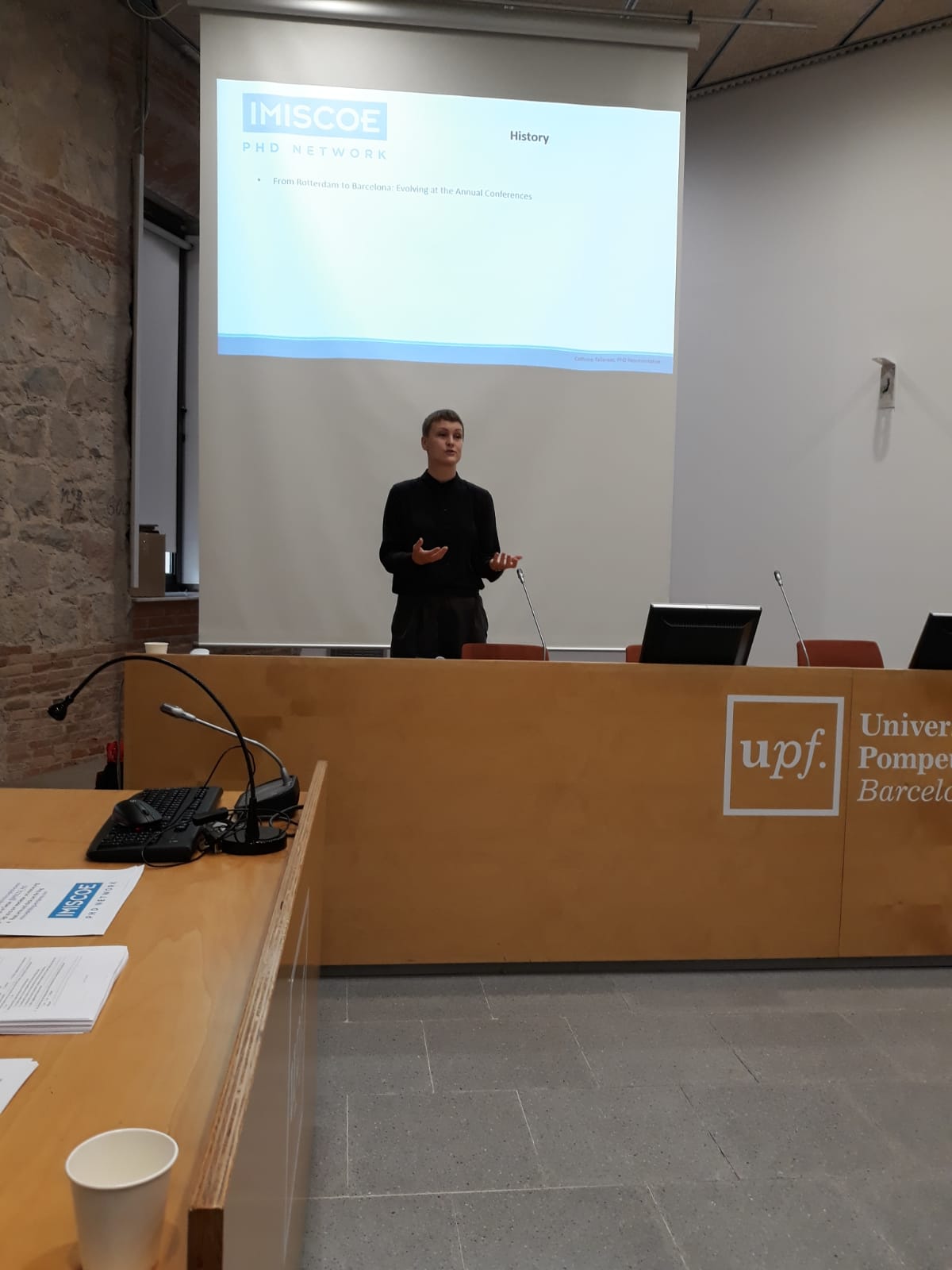
The Research funding workshop starts at 9.30 am and is given by associate professor Eva Ostergaard-Nielsen (Universitat Autònoma de Barcelona) and doctor Irina Ciornei (Universität Bern). They provide the attendants with an opportunity to think about important skills and European opportunities for applying for funding in the field of migration. Through examples of Spanish, German, Swiss and other calls, the invited speakers also share their own experiences, which culminates in a moment of Q&A. A very useful talk for PhD’s in any stage of their project.
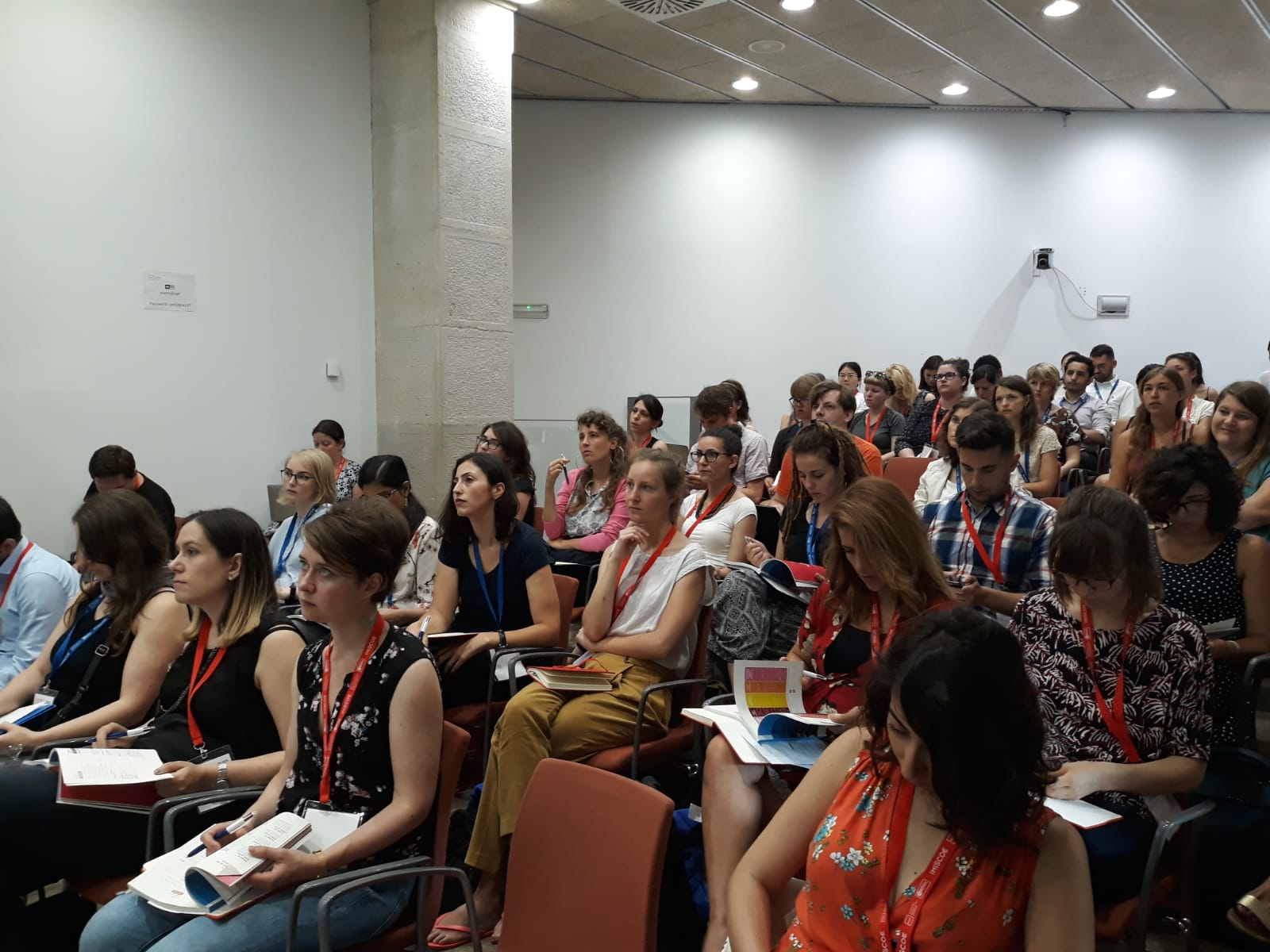
At 11.00 am Jorge Malheiros (Universidade de Lisboa) shares his ideas on publishing in academia. His talk mostly covers some basic instructions on publishing in a scientific journal, especially relevant for people not having the experience of publishing yet. He also explains the process of publishing from an editor´s point of view (cover letter, peer review, instructions of specific journals, impact factors, etc.). What is quite interesting here, is that Jorge does not advocate only for publishing in the Anglo-Saxon world, but that he finds that publishing in the national language is also very important, not only for your country, but also for your career.
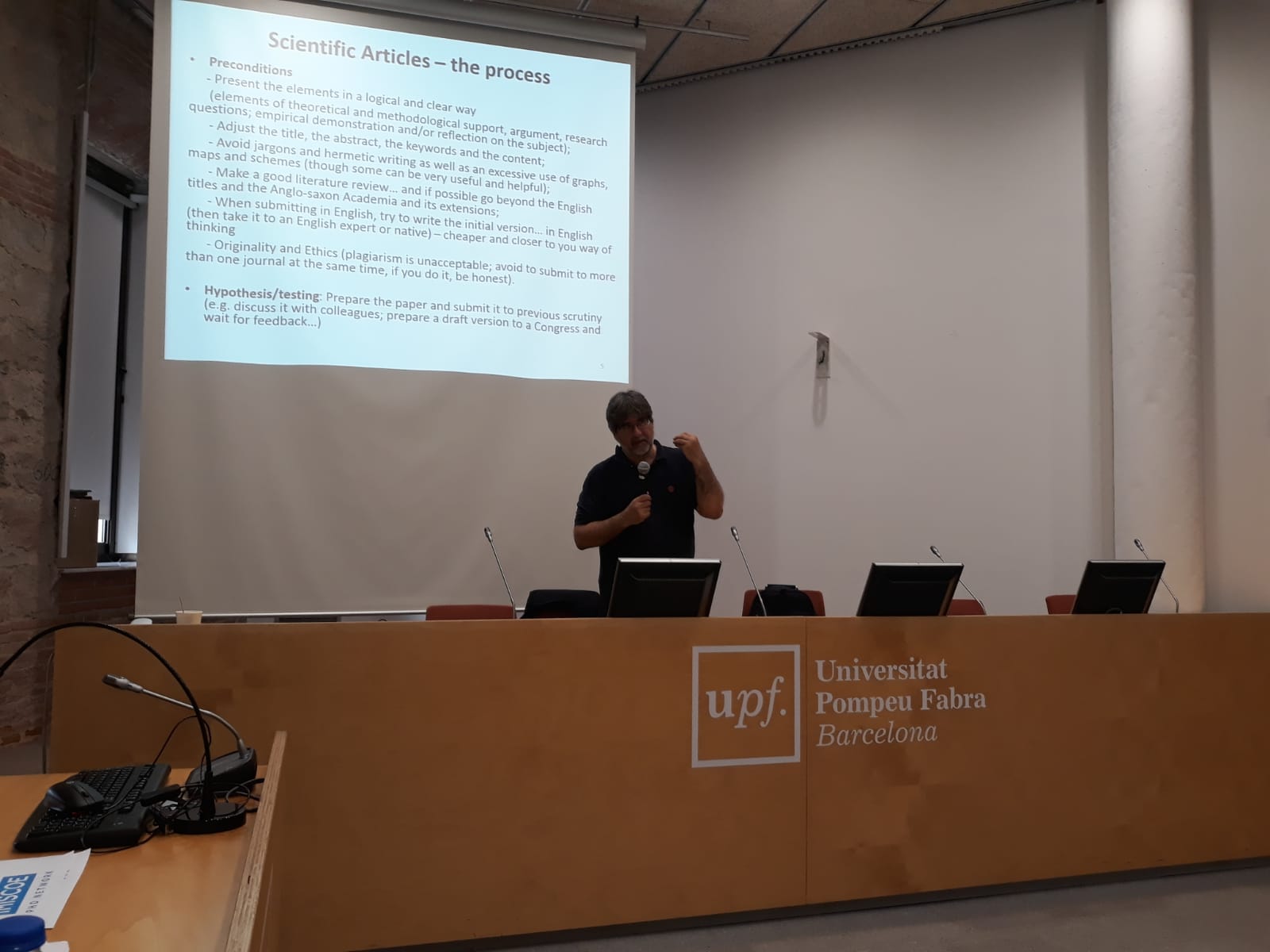
It is not very easy to prepare a substantive talk that speaks to so many different research backgrounds. Professor Janine Dahinden (Université de Neuchâtel) does really pull this off though with her workshop-lecture titled: “Critical thinking in academia and benefits from interdisciplinary work”, which runs parallel to Jorge Malheiros’ one. She illustrates her plea to exercise strong critical thinking when using categories in migration studies such as “second generation”, “labour migrants”, “forced marriages”, etc. in order to avoid the risk of reproducing the exclusionary logics of migration policies and discourses. Furthermore, she describes how research could and should be made truly interdisciplinary in the field of migration studies – although the road to genuine interdisciplinarity is still long.
All in all, the workshops not only consisted of exciting talks by senior researchers, but also of exchange of ideas across disciplines and PhD’s. An awesome exercise! However, this was not all the IMISCOE PhD Network had to offer PhD’s during the conference. Well-organized Intergenerational Feedback (IF) sessions on (early!) Wednesday morning (again: breakfast provided! :)) gave PhD’s the opportunity to share their work with a small group of other PhD’s and a senior researcher, who read and commented on an extended abstract distributed beforehand. As a participant in the IF sessions myself; it was a very inspiring and motivating experience to hear a new perspective on my work.
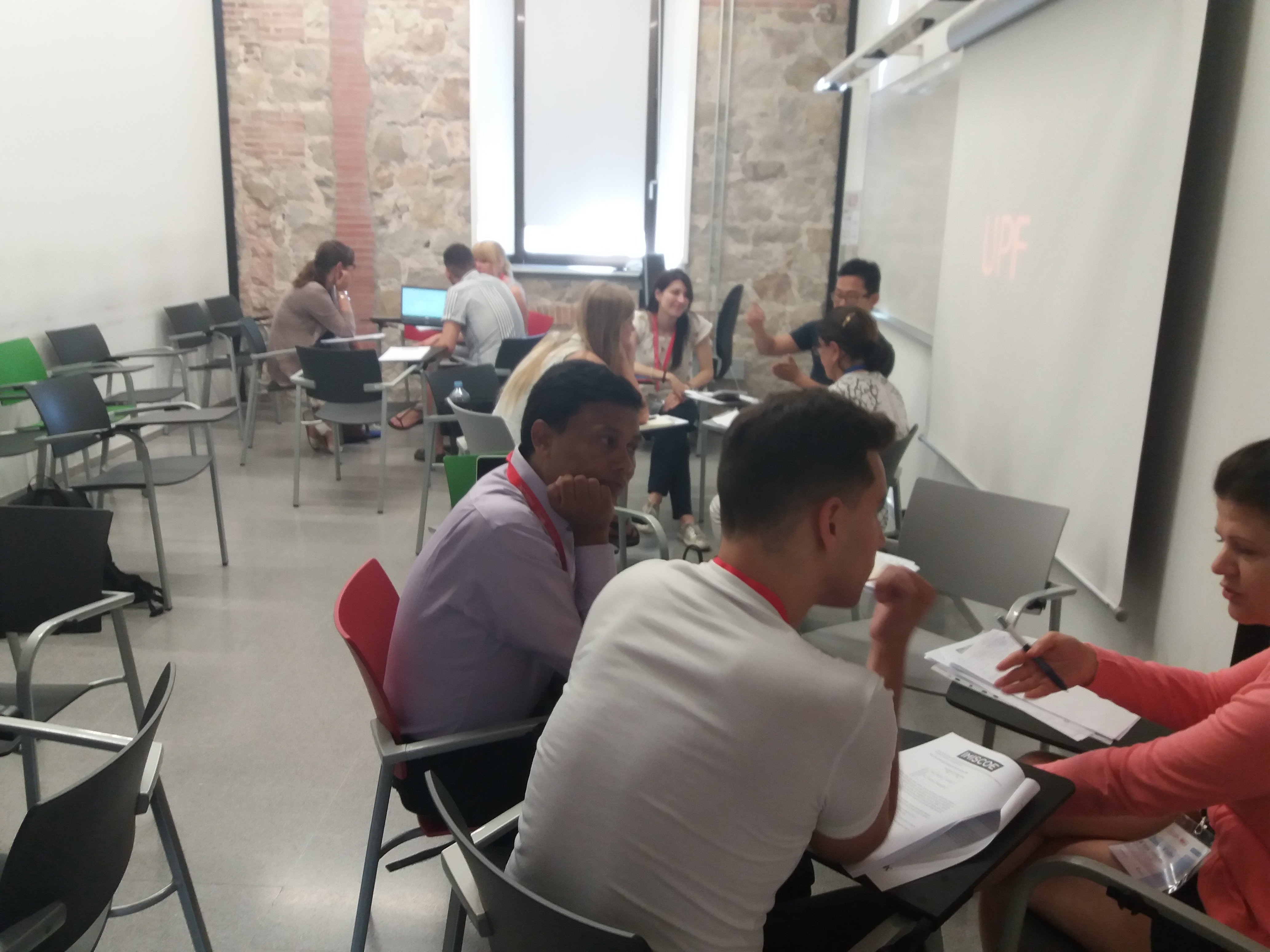
The rest of the conference is how conferences should be: many interesting sessions to choose from, great lunches (yes, I find this important), plenty of networking – or not networking but just relaxing – opportunities during the evening, all against a summery and bubbly Barcelona. Oh how I love PhD life at times of conferences! Something to remember when struggling with some complex analyses on a gloomy autumn day behind my desk in Amsterdam. This is also the message senior researcher Martha Bivand Erdal (Peace Research Institute Oslo) gives us to wrap up the IF sessions on Wednesday morning: “enjoy PhD life because when it’s over you can only wish being a PhD all over again!”.
With this message at heart the PhD Network looks back on a very successful IMISCOE conference, in which PhD’s both blended in with more senior researchers but where also a stronger and livelier PhD Network was build. We wish you a great and deserved, relaxing summer!
We will be back with more interesting blogs in September :-)
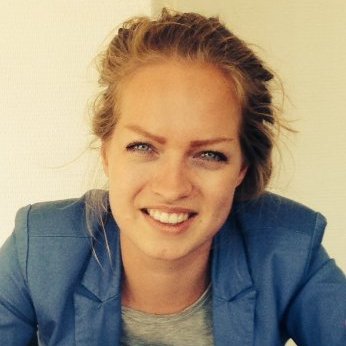
Jolien Klok is a PhD researcher in sociology at VU Amsterdam, and editor for the IMISCOE PhD Blog
